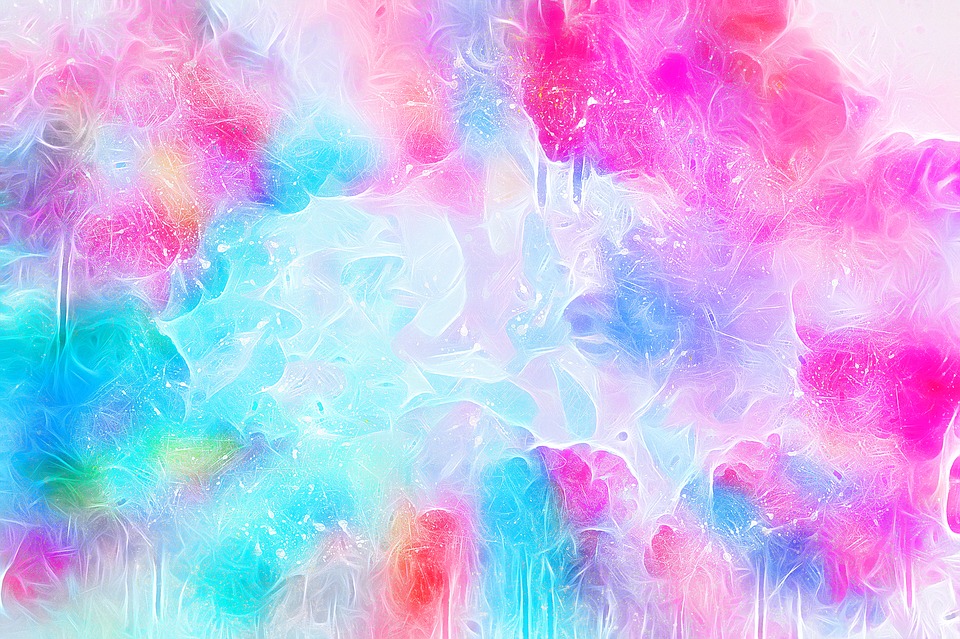Systemfluidity – Gender Identity and Dissociative Identity Disorder
Gender is complicated. It is about feelings and identity, it is about relating to your physical body and feeling comfortable with how others see you. It is intertwined with body image, with sexuality, with gender expectations and with mental health. It is not an easy concept. In the last few years, gender has become more broadly discussed and different expressions and identities have found acceptance not only in the LGBTQ+ community, but also within Western society in general. There is still a lot to be done when it comes to equal rights, safe spaces, to eradicating transphobia and educating the general public. Still, it has become easier for people to come out as non-binary, agender, trans or queer. And that should be celebrated.
I have never thought much about my gender identity although I sort of realized that I am not necessarily feeling like I connected to the body’s sex or gender all the time. It just didn’t bother me much. I just go with the flow when it comes to most things in my life. I am pansexual, for instance. But I never felt the need to come out, or hide that fact, nor do I feel like I strongly belong to the LGBTQ+ community. I just don’t share their struggles and experiences, I never felt oppressed for being pansexual, nor have I ever been discriminated. I have always felt more like an ally than a member of the community.
There are things, to myself and my own well-being, that are more defining to me than my sexual orientation. That is just me. For others, it is different, and they actually are met with a lot more adversities than I have ever encountered due to who I loved or made out with (or don’t do those things with).
Genderfluid?
Gender is way more complicated than that for me. And I have written about this before, how I these days rather identify as genderfluid than being a cis-female. But somehow that still doesn’t feel right. Because I actually feel like a woman, I am a strong feminist and I fight for women’s rights. But being cis would not embrace all of who we are. Because sometimes the “I” is non-binary, sometimes male, sometimes masculine presenting, other times very femme. Gender is about how you feel and how those feelings relate to your body’s sex and gender presentation. And my feelings of identity are so fluctuating, that I couldn’t even tell you in an hour who I actually am. Thus is the reality of Dissociative Identity Disorder.
Dissociative Identity Disorder (DID)
I have talked about this many times before. Dissociative Identity Disorder is a mental disorder that is based on childhood trauma, often repeated long term trauma like sexual abuse, physical abuse, emotional abuse, ritual abuse, extreme neglect and such. A lot of times it is a combination of many different kinds of abuses. If a child (according to the theory of structural dissociation, before the ages of 7-9 as that is the time children form a coherent personality) experiences trauma, the brain has many different tools to handle that threat, and one of the possible ways to survive trauma is dissociation.
There is also fighting, and running, but oftentimes the child is in a place of submission where it can not escape. The majority of childhood abusers are parents or close family members. The child has no way to escape and is dependent on their caregivers. So what is the best way to survive? The brain engages dissociation, which basically means a disconnect from reality, feelings and pain.
And when the brain does that, it can store memories and experiences that you don’t always have access to. Let’s say you have been through a traumatic event, like a car crash, and the memory of it is blurry and not detailed? It is because your brain disconnects you from those memories and the feelings connected to it, to protect you.
If the trauma is extreme, and repeated, that dissociation becomes stronger, similar events and experiences get stored in the same way, and an alter is created. That alter will then be able to hold those memories and feelings and pain, without you having access to it. And that state of mind, that alter, will be the one taking any kind of traumatic experiences that are similar that the one which created them. Different alters have different functions, to make sure that you can survive, keeping you away from the bad that has happened.
Once your brain has activated that survival mechanism once, it can do it again. Hence why most people who have DID have more than one alter. For all that to function, you need a certain level of amnesia about your trauma, and between alters. It is often much later in life (the average person gets diagnosed with DID when the body is in the 30s), that there is an awareness and that memories of the traumas pop up again. Things crack, the functionality becomes dysfunctional. The goal for most people with DID is functioning multiplicity, not fusion of all alters into one personality.
An alter is their own person. They have their own likes, personality, their own needs and wants, function, talents and so on. They are in different age groups, often dependent on when they got created. And they can definitely have different genders. So a person with DID is basically part of a system that lives inside the body that everyone else sees. They are more than one person, and sometimes you might engage with one alter, sometimes with another, sometimes with several alters at once (called “co-conscious”).
Before anyone thinks of silly representations of DID in media: no, it is not like in the movie “Split”. The total amnesia between alters is quite rare once a system has become self-aware, and even if there is a total amnesia, those with DID are way more likely to become victims of abuse than to become dangerous to others. Remember, we are childhood trauma survivors? DID is mostly a covert illness (although overt representations are valid too, of course), so you wouldn’t be able to tell a switch (the person who is driving the ship changes) or even recognize someone with DID. The idea of multiple selves is so different from the narrative that everyone has one stable personality, that most people have a hard time wrapping their heads around the idea.
Our System
Alright. So I am in a system with somewhere between 30 to 40 alters and fragments (not fully developed alters, but more like specific for a certain sort of experience), out of which about 15 front (engage with the world around them) quite frequently. I am an alter. I am not the whole system, the whole person. I am one of many persons inside this body. It is confusing to me, so I can imagine how confusing it can be to others. I hope you have been able to follow my explanations so far though.
My existence as a host (or am I the host? I don’t even know anymore. I wrote about it.) is just as valid and important as everyone else’s in the system. So my needs and wants are not more important, I can’t make all decisions on my own. So logically, it follows, my gender identity isn’t the default and only gender identity within the system.
But I, singular, as one alter in a system of at least 30 alters, identify as cis-gender. It means that I feel like the gender that my body has been assigned to at birth: female. But we, as a system, are not cis-gender. That we consists of many “I” and each and everyone of them relates to the body differently. Some alters are inside our system are agender/genderless, others are non-binary, others genderfluid, yet others identify as male, and some identify as a woman, but with different gender-expressions: femme and masculine. So when I am engaging with the world, I can confidently say I am a cis woman. But if someone else engages with the world, it might be a whole different story.
And it isn’t only that. Do the male alters actually feel trans because their identity is not the same as the body’s gender expression? I definitely know that no one wants to transition, but I remember in the past that there were months on end with a strong urge to either cut the breasts off ourselves or to get surgery. Sometimes we dress more femme, other times more non-binary, yet other times very masculine. Why? Because it always depends on who is fronting and how that particularly alters relates to the body.
My, and our, experiences are very different from how people without DID experience the world, and iso is are our experiences of identity. So the terms that might fit everyone else, can seem very wrong when you are a system. Genderfluidity is a term that is used for those who are a single person, one personality who doesn’t identify with the same gender at all times. But that is not really how it works when you are part of a system. Because, no, I am not genderfluid. But we as a collection don’t identify as one gender either. And then I came across the term systemfluidity.
Systemfluidity
Systemfluidity basically means that the system as a whole doesn’t relate to a single gender, but eveyone in the system has their own gender identity. So the gender identity is fluid, within the system, because different alters relate to the body differently. And that seems perfect to describing how I and the system I am part of functions. Under the umbrella of systemfluidity there can be a lot of different gender identities. It seems like a validating term because we can agree on that the system is fluid in gender, all depending on who is fronting. And each and everyone of the alters can have their own personal gender identity.
We don’t have as much healthy communication within our system as we should. Most of the time, I just go with the flow, and don’t acknowledge the DID. It just becomes overwhelming when you don’t really have a huge support system, nor professional support. So for me to tell which gender expression links to which alter, is quite impossible. It is up to them to figure it out, if they feel it is important to them. I can only talk about the alters that have been very clear about who they are and what they identify with. To me personally, gender identity isn’t important. But I assume it might be more important to others within the system. And by using the term systemfluidity, they might feel safer being who they know they are.
Systemfluidity – Every system’s own decision
We are sort of lucky because we don’t struggle with our gender identity the way other systems do. We still want to figure it out though, and make sure that we meet as many needs as possible. But if you have alters in your system that feel very strongly about their gender identity as being trans, and are unable to transition because the system in general doesn’t feel the way they do, that must be the most terrible experience.
There is a possibility of trans systems (everyone being trans, or the majority being trans) or the majority of a system deciding that transitioning is the right way to go. And there might even be those who transition and then first later find out that they are a system.
Being a trans, or queer, alter within a system is difficult. From personal experience, it is rare with systems with a coherent strong gender identity that everyone stands behind. But they do exist, and there are many systems who either embrace systemfluidity and allow each other to express their gender when they front, and there are also systems who agree on one gender identity and then transition if that is the chosen path. DID comes in many different varieties and they are all valid. And they need to figure out for themselves how they want to relate to the concept of systemfluidity.
A trans alter in a system faces similar struggles as other trans people, but is also limited by being part of a system. It is not as easy to make the decision to transition with the help of HRT or surgery, if not everyone in the system agrees with it. Because everyone should have the same rights within a system. But that doesn’t mean that there should be gatekeeping from psychiatry. A mental disorder that makes the process a little bit more complicated, shouldn’t be a reason for denial of help with gender identity issues.
I personally still don’t feel like my gender identity is something very important to me. But I respect that if in the future anyone in my system feels very strongly about theirs and they want to express it more, I will be supportive. Because it is not my body alone. I am not genderfluid, but we together can relate to systemfluidity. I really like that term.











Another fascinating post where I feel that I have learnt a lot. Thank you for sharing and helping to bring a little more understanding to the various aspects of DID. Missy x
Thanks, Missy! It sometimes helps me to write things out and I have been trying to wrap my head around gender and my own identity for a while now.
The term is beautiful, but it seems to me that it is easier to live for those who clearly identify themselves and who have no problems with it.
Nevertheless, I liked your post. You, as always, clearly state your thoughts on the topic. And a lot becomes clear, even to those who are not in the subject.
Thanks, Lisa!